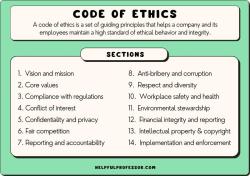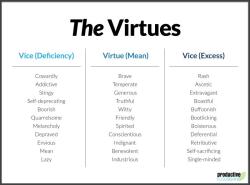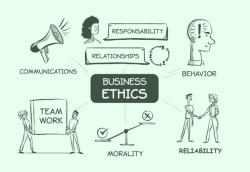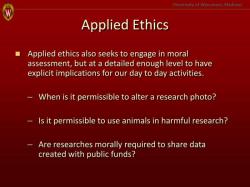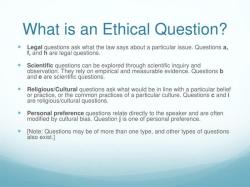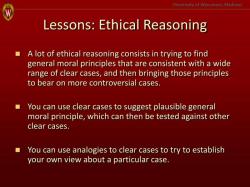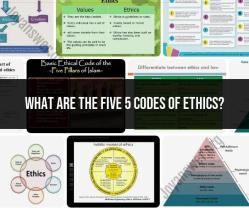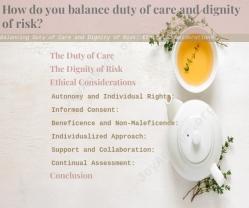What can you do with degree in ethics?
A degree in ethics can open up a range of career paths across various sectors, as ethical considerations are integral to decision-making and operations in many fields. Here are several career paths and opportunities for individuals with a degree in ethics:
Ethics Officer/Compliance Officer:
- Work for organizations to ensure compliance with ethical standards and legal regulations. Ethics officers help establish and enforce ethical guidelines and policies within a company.
Corporate Social Responsibility (CSR) Manager:
- Manage and implement CSR initiatives for businesses, focusing on ethical and sustainable practices. This role involves addressing social and environmental concerns while contributing to the community.
Nonprofit Sector:
- Work for nonprofit organizations as an advocate, fundraiser, program manager, or leader. Ethical considerations are crucial in nonprofit work, especially in areas such as human rights, environmental conservation, and social justice.
Human Resources Specialist:
- Specialize in ethical considerations related to employee relations, hiring practices, and workplace policies. HR professionals with an ethics background can contribute to creating an ethical workplace culture.
Law and Legal Consulting:
- Pursue a career in law, specializing in ethics, human rights, or environmental law. Legal consultants with expertise in ethics can provide guidance to businesses and individuals on legal and ethical matters.
Philanthropy and Grantmaking:
- Work for foundations or grantmaking organizations, overseeing the distribution of funds to support ethical causes and initiatives. Ethical considerations play a significant role in determining which projects receive funding.
Journalism and Media Ethics:
- Work as a journalist or media professional focusing on ethical reporting and responsible journalism. Media organizations value professionals who understand the ethical implications of their work.
Environmental Ethics and Sustainability:
- Specialize in environmental ethics and sustainability, working for organizations dedicated to promoting environmentally responsible practices and addressing climate change.
Bioethics and Healthcare Ethics:
- Work in healthcare settings, addressing ethical dilemmas and policy issues. Bioethicists contribute to ethical decision-making in areas such as medical research, patient care, and healthcare policy.
Government and Public Policy:
- Contribute to ethical decision-making in government agencies and public policy organizations. This may involve working on issues such as human rights, social justice, and ethical governance.
Education and Academic Research:
- Teach ethics at educational institutions or engage in academic research in ethical philosophy. Contribute to the development of ethical thinking among students and scholars.
Technology Ethics and Privacy:
- Work in the technology sector, focusing on ethical considerations related to data privacy, artificial intelligence, and emerging technologies.
International Relations and Diplomacy:
- Work in international relations, diplomacy, or foreign policy, addressing ethical considerations in global affairs, conflict resolution, and humanitarian efforts.
Social Work and Counseling:
- Apply ethical principles in social work or counseling roles, helping individuals and communities navigate complex ethical issues.
Educational Administration:
- Contribute to ethical decision-making in educational institutions by working in administrative roles. This may involve developing and implementing ethical policies for schools and colleges.
A degree in ethics provides a strong foundation for critical thinking, ethical reasoning, and decision-making, making graduates well-suited for a variety of roles that require a nuanced understanding of ethical considerations. The specific career path chosen often depends on individual interests, values, and the focus of the ethics program.
What career paths or opportunities are available with a degree in ethics?
While a degree in ethics doesn't directly qualify you for any specific job title, it equips you with valuable skills and knowledge that can open doors to diverse and fulfilling career paths across various sectors. Here are some exciting possibilities:
1. Policy and Compliance:
- Compliance Officer: Ensure organizations adhere to ethical regulations and best practices in fields like healthcare, finance, or technology.
- Policy Analyst: Research and develop ethical policies for organizations, considering stakeholder interests and potential impacts.
- Risk Management Consultant: Help organizations identify and mitigate ethical risks in their operations and decision-making.
2. Business and Consulting:
- Business Ethics Consultant: Advise businesses on integrating ethical principles into their decisions, strategies, and corporate culture.
- Sustainability Consultant: Help businesses develop and implement sustainable practices that align with ethical considerations.
- Corporate Social Responsibility Manager: Oversee and manage a company's social responsibility initiatives and ethical engagement with stakeholders.
3. Research and Academia:
- Research Ethics Officer: Review and ensure ethical compliance in research conducted by universities, hospitals, or research institutions.
- Bioethicist: Apply ethical principles to complex issues in healthcare, biotechnology, and life sciences.
- Professor or Lecturer: Teach ethics courses at universities, colleges, or professional training programs.
4. Advocacy and Non-Profit:
- Human Rights Advocate: Advocate for human rights and social justice using ethical frameworks and principles.
- Public Policy Advocate: Lobby for or raise awareness about ethical issues in public policy and legislation.
- Non-Profit Program Manager: Develop and manage programs for non-profit organizations addressing ethical issues in areas like environment, education, or poverty.
5. Media and Communications:
- Journalist or Writer: Focus on reporting or writing about ethical issues and social problems, holding organizations and individuals accountable.
- Documentary Filmmaker: Create documentaries that explore ethical dilemmas and raise awareness about important issues.
- Communications Consultant: Advise organizations on ethical communication practices and crisis management strategies.
Additional Skills and Opportunities:
- Law: Combine your ethics degree with a law degree to specialize in areas like environmental law, human rights law, or intellectual property law.
- Education: Pursue teacher training and teach ethics-related subjects in schools or training programs.
- Entrepreneurship: Start your own business or social enterprise focused on promoting ethical practices and solutions.
Remember, your career path with an ethics degree depends on your specific interests, skills, and experience. Network with professionals in your desired field, gain relevant internships, and continuously develop your critical thinking, communication, and problem-solving abilities to stand out in your chosen career path.
I hope this helps! Let me know if you have any further questions about specific career options or resources for exploring them.



